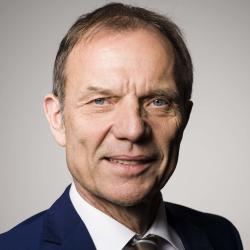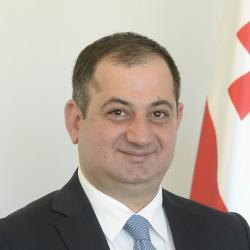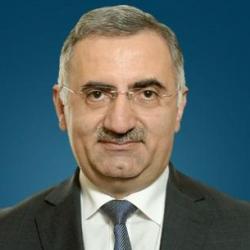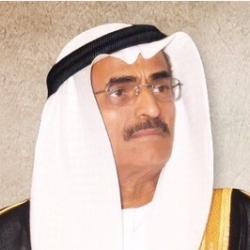Financing infrastructure connectivity
Ministerial Event
- lock_open Restricted participation
Financing transport infrastructure remains a key challenge for authorities. Increasingly many governments seek private sources of finance to realise their infrastructure needs. “Financing” infrastructure, is about who borrows the money for the project, whereas “funding” is about who repays what was borrowed. There can be no financing without funding. Calling on users of the infrastructure or taxpayers to pay more, however, is often politically challenging. Hence how to spend available money more efficiently remains a major question and the context in which private finance should be considered.
To date, even in countries that most embraced private financing of infrastructure, it has never represented more than 10% of total infrastructure investment, the rest being financed by public sources.
Public-private partnerships (PPPs) in roads currently dominate transport infrastructure. In recent years, Europe has seen a flurry of negative reports on PPPs by national audit authorities, challenging the political sustainability of the approach.
ITF recently concluded a major research project, exploring when and how to involve private finance in transport infrastructure. Key findings of the work highlight that the state should reduce uncertainties the contractors face in the bidding process, by investing more effort in creating information about risk and taking responsibility for it. Second, greater discrimination is necessary in terms of where PPP is a good fit. Third, there may be other options than PPP to involve private finance in transport infrastructure.
Suggested topics for discussion include:
- What are the experiences with building strong in-house capacity to help governments become better at engaging with the private sector in procurement?
- What lessons have been learned with regard to private investment in dealing with the recent global financial crisis?
- What political preconditions are necessary for countries to consider private financing of infrastructure?
- How can infrastructure investment be made more attractive for the private sector?
Background reading:
- What is PPP and what is Regulatory Asset Base: https://www.itf-oecd.org/sites/default/files/dp_2016-01_makovsek_and_veryard.pdf
- ITF’s recently concluded major research project: https://www.itf-oecd.org/private-investment-transport-infrastructure-uncertainty
Pat Cox

Pat Cox has been President of the European Parliament Former Members’ Association (2010-2014), President of the European Movement International (2005-2011), a former President of the European Parliament (2002-2004), and Member of the European Parliament (1989-2004). Between 1998 and 2002 he was President of the European Liberal Democrat and Reform Party (ELDR) Group European Parliament. Prior to this Cox was a current affairs television broadcaster for RTE, Ireland's national broadcaster, from 1982 to 1986 and Secretary General Progressive Democrat Party (Ireland) between 1986 and 1989.
Paulius Martinkus

Mr. Paulius Martinkus is Vice-Minister of Transport and Communications of the Republic of Lithuania since 29 December 2016. Paulius is responsible for aviation, road, rail and maritime policy departments within the ministry. After graduating from Stockholm School of Economics in Riga (BSc in Economics and Business) he worked as Project Manager at GILD Bankers (Tallinn, Estonia, 2006-2009) and Group Finance Controller at JSC "the Book" (2009–2011). Later he was Head of Governance Coordination Centre for State-Owned Enterprises (2011–2013), President of Baltic Institute of Corporate Governance (2014–2016). Since 2008 he has served as professional member of Boards of Directors in private and state-owned enterprises. Currently Paulius holds board member position in state owned enterprises JSC "Lithuanian Railways", SE “Klaipėda State Sea Port Authority” and JSC “Smiltynės perkėla”.
Supee Teravaninthorn

Hartmut Mangold

From 1977 to 1982, Dr. Hartmut Mangold studied law, German language and literature at the Universities of Freiburg
and Regensburg, completing a doctorate in philosophy (Dr. phil.) in 1988.
He was the Head of Department at Brandenburg’s Ministry of Science, Education and Culture,and later moved to the Brandenburg State Chancellery. Mangold then became the Head of Department at the Federal Chancellery.
He worked as Ministerialdirigent (head of a ministerial section) at the Federal Ministry of
Transport, Construction and Urban Development.
Dr. Hartmut Mangold has been the State Secretary at the Saxon State Ministry for Economic Affairs,
Labour and Transport since December 2014.
Ángela María Orozco Gómez

Ángela María Orozco Gómez is a Barranquilla lawyer from Universidad Javeriana with a Master's degree in Comparative Jurisprudence from the University of Texas (United States), a specialist in Economic Law from the Externado University of Colombia and a Fellow at the Yale World Yale University (2003). She was designated as one of the 100 global leaders of tomorrow by the World Economic Forum (2000), as one of the 10 outstanding young people of Colombia by the Junior Chamber of Colombia (2000) and as the year's Foreign Trade executive by the Association of Foreign Trade Directors 2001). She has worked in the public sector as Minister of Foreign Trade (2002), President of Proexport (2000-2002) and Vice Minister of Foreign Trade (1998- 2000). She excelled in positions such as General and International Manager and Vice President of the Colombian Association of Flower Exporters (Asocolflores, 1995-1998), Head of the legal office of the Superintendency of Securities, where she was also an advisor (1994-1995), Associate Lawyer in Araújo Ibarra & Asociados (1993-1994); Economic Advisor to the Embassy of the United States (1993), Deputy Director of Trade Promotion Instruments (1992-1993) and Head of the Legal Division of the Commercial Practice of Incomex (1990-1992). She has also served as a member of international trade dispute settlement panels within the framework of the WTO (2015-2016) and ALADI (2004).
Akaki Saghirashvili

Mr. Akaki Saghirashvili is the Deputy Minister of Economy and Sustainable Development of Georgia since 1 October 2018. Prior to this position, during 2007-2018 he took several positions at Georgian Railway: Head of Corporate Management Department; Deputy Director of Infrastructure Branch (in charge of administrative and legal issues); Head of Legal Services Office, Head of Permanent Commission on Capital and Stock Management; Deputy Head of Legal Services Office; Advisor to Executive Director on Legal Issues; Lawyer, Rental Relations Administration Group, Property Management Agency. During 2009-2011, Mr. Saghirashvili was a Lecturer of Civil Law at Caucasus School of Law.
Mr. Saghirashvili holds MA Degree in Civil Law from Ivane Javakhishvili Tbilisi State University and MA Degree in Civil Law from Rheinische Friedrich-Wilhelms-Universität Bonn.
Elmir Velizadeh

Elmir Velizadeh has been Deputy Minister of Transport, Communications and High Technologies since 2018.
He is a graduate of Azerbaijan Oil and Chemistry Institute (now Azerbaijan State Oil and Industry University) with Bachelor’s Degree in Automated Control Systems.
He worked at Computing Center of Azerbaijan Oil and Chemistry Institute. In the period of 1989 to 1991, while working there he continued pedagogical activities in Computing machines and programming chair. He was engaged in scientific researches on artificial intellect and expert systems and is the author of some scientific articles and teaching aids.
Abdulla Belhaif Al-Nuaimi

His Excellency Dr. Eng. Abdulla Al-Nuaimi joined the Federal Government in 2013 as Minister of infrastructure Development, which is responsible of developing the infrastructure of the federal state road networks and federal buildings (schools, hospitals, government buildings, research centers, cultural and sports centers, police stations and civil defense, housing for the citizens, and other governmental projects).
Beside his responsibilities as a Minister Dr. Eng. Abdulla Al-Nuaimi is Chairman of Sheikh Zayed Housing Program and also he is a Chairman of Federal Transport Authority.
Dr. Eng. Abdulla Al Nuaimi holds a Ph.D. degree in Construction Management from the University Of Reading, UK (1990), and a Bachelor degree in Mechanical Engineering from the University of Wisconsin in USA (1980). Among his hobbies playing tennis, swimming and reading.